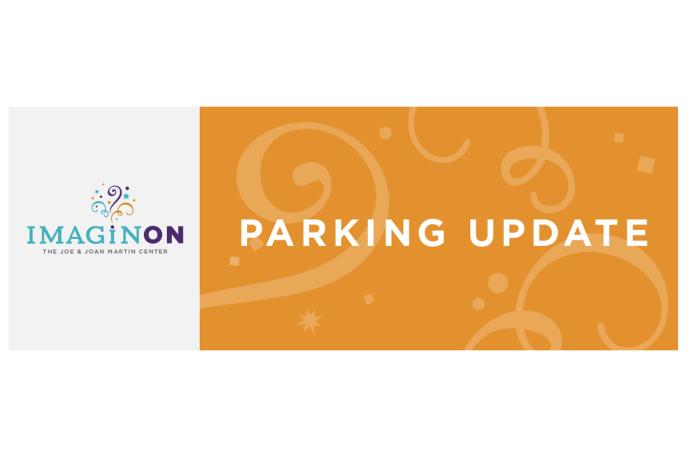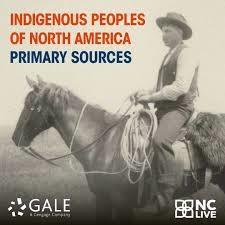This blog was written by Darrell Anderson, marketing and communications specialist for Charlotte Mecklenburg Library
* playlist has been updated as of December 4, 2024
In addition to a good, wintery read, there is something about holiday music that brings the winter months to life. We've compiled a “Jingle Jams” playlist of seasonal songs that will make you want to bust a move to the groove, sing along, mellow your mood, tap your toes, bundle up in front of a fire, decorate your home, or some combination of celebration! Whatever you celebrate, there is a song for you. We tried to keep this list inclusive, knowing that our libraries serve diverse customers with equally diverse beliefs.
Whether you’re a reindeer, the Grinch, a metalhead or someone who speaks native Hawaiian, we’ve got you covered.
One thing to note, before you get jiggy with your jingle jams, you will need to have your Library card or ONE Access ID number handy to log in and stream this Freegal Music playlist (you can also find these songs alternatively on hoopla). Don’t have a Library card yet? The best, money-saving gifts come in small, pocket-sized packages – click here to give yourself the gift of the public library all year long.
On Dasher, on Dancer, on to the “jingle jams” playlist….!
“Jingle Jams” Track List
- 8 Days of Christmas – Destiny’s Child
- All I Want for Christmas Is You – Mariah Carey
- Baby It’s Cold Outside – John Legend with Kelly Clarkson
- Blue Christmas (Remastered) – Shakin’ Stevens
- Blue Christmas – Elvis Presley
- Bring a Torch – Donna Germano
- Carol of the Bagpipers - Joemy Wilson
- Carol of the Bells – Trans Atlantic Christmas All-Stars
- Caroling, Caroling – Natalie Cole
- Christmas Eve / Sarajevo 12/24 Instrumental – Trans-Siberian Orchestra
- Christmas in Hollis – Run DMC
- Christmas Rappin’ – Kurtis Blow
- Dance of the Sugar Plum Fairy – Pentatonix
- Dreidel, Dreidel, Dreidel – The Wiggles
- Do You Hear What I Hear? – Whitney Houston
- Every Year, Every Christmas – Luther Vandross
- Fairytale of New York – Jimmy Elf and the Blue Flakes
- Fall in Love at Christmas – Mariah Carey feat. Khalid and Kirk Franklin
- Fancy Like Christmas – Walker Hayes
- Fairytale of New York – The Pogues
- Feliz Navidad – Feliz Navidad All-Stars
- Feliz Navidad (Metal Version) – Leo
- First Noel – Leslie Odom Jr.
- Frosty the Snowman – The Ronettes
- Good King Wenceslas – A Hero for the World
- Grandma Got Ran Over by a Reindeer – Elmo & Patsy
- Hanukkah Oh Hanukkah – Isabel Rose
- Happy Holiday/The Holiday Season – Andy Williams
- Hard Candy Christmas – Dolly Parton
- Here We Come A-Wassailing - The Galway Christmas Singers
- Home for Christmas – *NSYNC
- I Don't Want Christmas to End – Zach Williams
- I Have a Little Dreidel – David & The High Spirit
- I Saw Mommy Kissing Santa Claus – The Jackson 5
- I Want a Hippopotamus for Christmas – A Great Big World
- It's The Most Wonderful Time of the Year – Andy Williams
- I've Got My Love to Keep Me Warm – Bette Midler
- Jesus is the Reason for the Season – Kirk Franklin
- Jingle Bells – Skid Row
- Jingle Bell Rock – Hot Chelle Rae
- Joy to the World –Aretha Franklin
- Kiss Me It's Christmas – Leona Lewis Feat. Ne-Yo
- Kwanzaa Midnight – Street Sounds
- Last Christmas – WHAM!
- Let It Snow – Let it Snow
- Let It Snow, Let It Snow – Jessica Simpson
- Macarena Christmas (Joy Mix) – Los Del Rio
- Mele Kalikimaka – Genoa Keawe & her Hula Maids
- Merry Christmas, Happy Holidays – *NSYNC
- Merry Christmas, Baby – Otis Redding
- My Favorite Things – John Coltrane
- My Gift To You – Alexander O’Neal
- Noche de Paz – Fifth Harmony
- Norupo – Heilung
- Nuttin' For Christmas – Stan Freberg
- O Holy Night – Céline Dion
- O Holy Night – Tevin Campbell
- Oh, Christmas Tree! – W.G. “Snuffy” Walden
- Oh Santa! – Mariah Carey (feat. Ariana Grande and Jennifer Hudson)
- Once Upon a December – Chloe Flower
- Peace on Earth – Kaskade
- Pretty Paper – Willie Nelson
- Rockin' Around the Christmas Tree – Meghan Trainor
- Run Rudolph Run – The Swon Brothers
- Rudolph the Red Nosed Reindeer – The Holiday Soul
- Santa Baby – Eartha Kitt
- Santa Baby – Kellie Pickler
- Santa Claus is Comin' to Town – Frank Sinatra
- Santa Claus is Comin' to Town – Bruce Springsteen
- Santa Tell Me – Conquer Divide
- Silent Night – The Temptations
- Silver Bells – Rhett Walker Band
- Silver Bells – Tony Bennett
- Sleigh Ride – Tamar Braxton
- Sleigh Ride – TLC
- Snowlight – Jessie James Decker
- Soul Holidays – Sounds of Blackness
- Still, Still, Still – Kaskade
- The Christmas Waltz – Johnny Mathis
- The Little Drummer Boy – Christopher Lee
- The Longest Night – Nox Arcana
- The Night Santa Went Crazy – “Weird Al” Yankovic
- This Christmas – The Holiday Soul
- This Christmas – Mary J. Blige
- This Christmas – Chris Brown
- The Mistletoe Jam – Luther Vandross
- Up on the Housetop – August Burns Red
- We Three Kings – Rob Halford
- What Are You Doing New Year's Eve? – Barbra Streisand
- What Child is This? – Vanessa Williams
- White Christmas – White Christmas
- White Christmas – Bing Crosby
- Winter Song – Sara Bareilles & Ingrid Michaelson
- Winter Song – Zara Larsson
- Winter Wonderland – Winter Wonderland Band
- Winter Wonderland/Don’t Worry Be Happy – Pentatonix ft. Tori Kelly
- Wintersaga – Windrose
- Wizards in Winter – Trans-Siberian Orchestra
- Wrap Me Up – Jhené Aiko
- You’re a Mean One Mr. Grinch – Thurl Ravenscroft
Happy holidays from Charlotte Mecklenburg Library!







